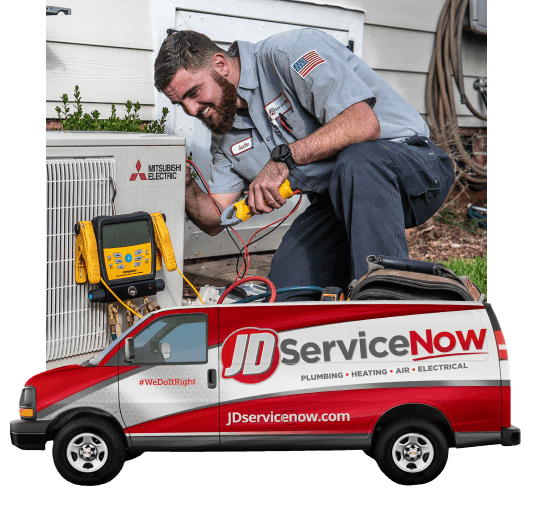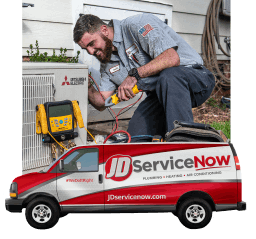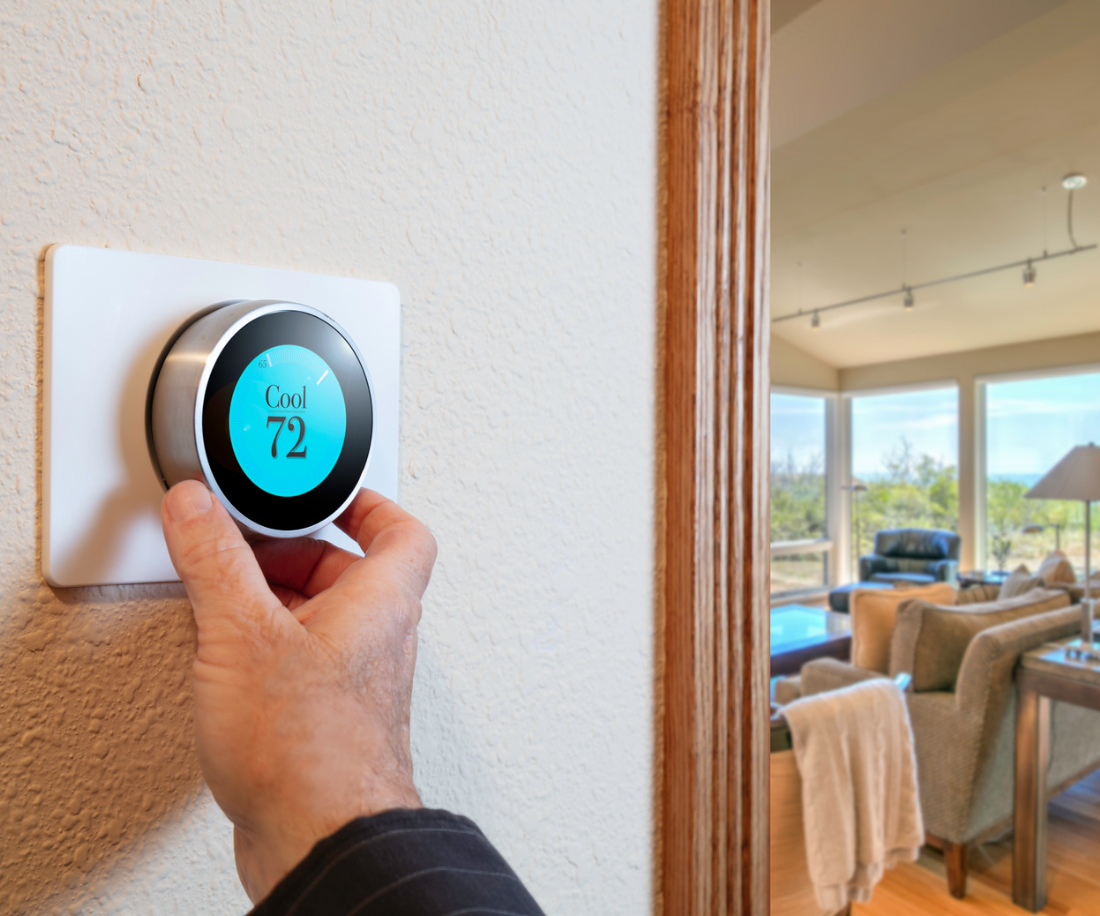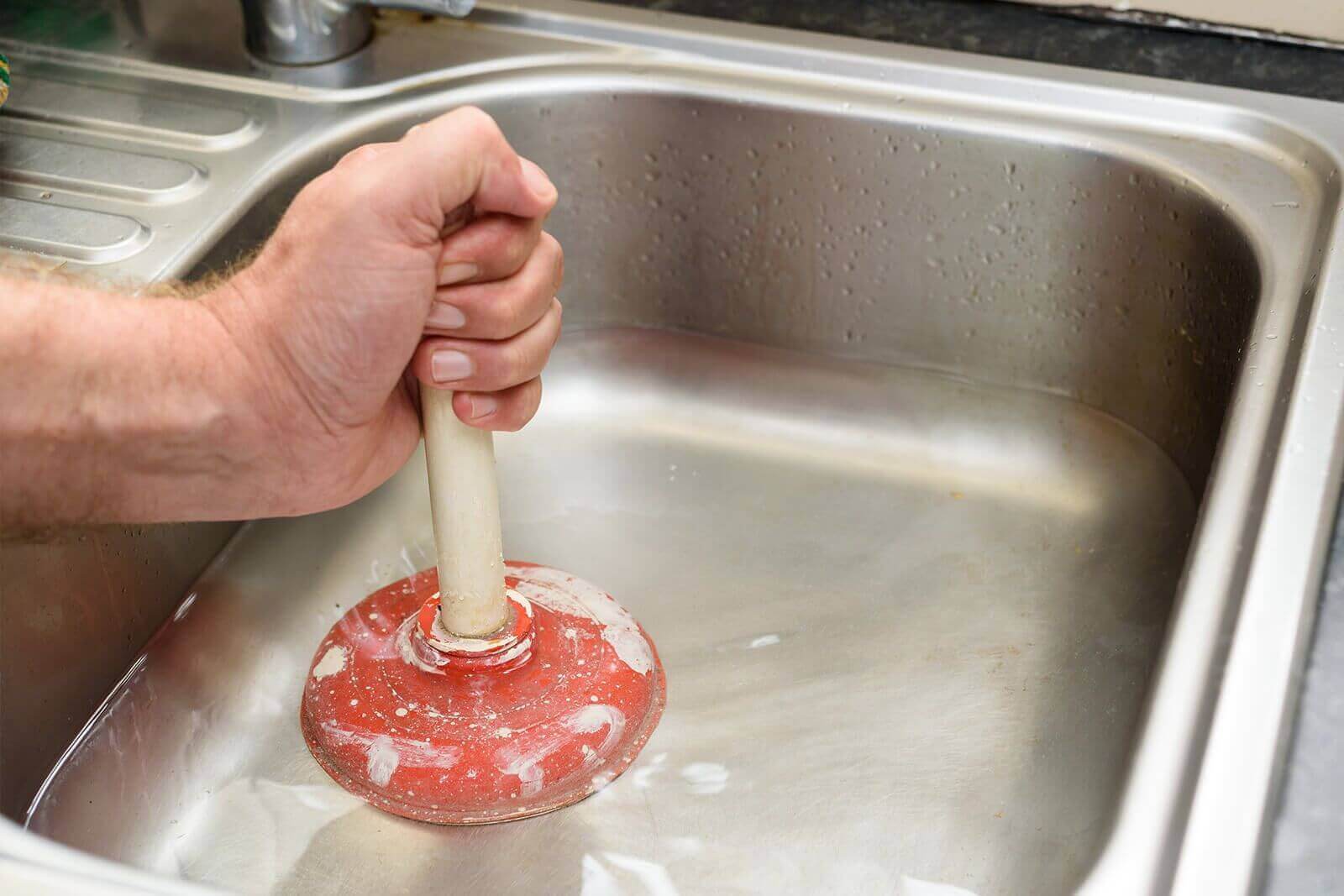10 Common Problems with Traditional Water Heating in Raleigh
Sometimes the older solutions aren’t necessarily of the better variety. When it comes to traditional water heating conducted with storage tanks, you run into a few problems.
Here are 10 of the more common problems with traditional storage water heaters.
- Inefficient: Traditional water heaters typically have a 60% to 65% efficiency rating, which means that up to 40% of heat is lost over time in normal operation. This is wasteful when compared to the on-demand nature of tankless water heaters that have almost no heat loss because they don’t store water.
- Consumes valuable space: Traditional water heaters take up a lot of physical space in your basement; because of their size and the heat radiating from them it’s also necessary to keep flammable things away from them. Tankless heaters hang on a wall and take up next to no space.
- Continuous heating of water 24×7: Empty a traditional water heater, and you start a cycle of fill and replace. Storage water heaters also have to keep their water at a consistent temperature, which means they’re perpetually heating water to keep it hot.
- Hot water volume is limited by tank capacity: No matter how big of a storage tank you purchase, you’ll always have a finite amount of hot water at any given time. Contrast that with a tankless, which never runs out of water because it’s always available on-demand.
- Prolonged recovery time with age and sediment buildup: The older a traditional water heater gets, the longer it takes to heat a full tank of water. Heating elements decrease in efficiency and greater sediment buildup means it takes longer for a tank to heat up.
- Sediment buildup: Traditional water heating involves pumping cold water into a storage tank. This cold water can have particulate matter inside, which floats to the bottom and builds up to interfere with efficient heating.
- Foul odors over time: The magnesium anode rod inside a traditional water heater is designed to corrode before the main equipment. When that happens, you may notice a musty scent in your water. This is a clear drawback when compared to tankless heaters.
- Leaking (pressure and corrosion) leading to failure then flooding: As your traditional water heater ages, the insides corrode from constant immersion in pressurized water. Over time, this can lead to leaks in the storage tank that can cause flooding in your home.
- Short lifespan: The average storage tank water heater lasts about 12 years, compared to 20 years or more for the tankless models. This means that you’d already be eight years into your second traditional storage heater by the time you even need to replace the first tankless.
- Short warranties: Most warranties on traditional water heaters are six years, with only one year of full warranty and five years of limited warranty. That’s not a lot of time when it comes to insuring the constant operation of a vital piece of home equipment.
If you have any questions regarding conventional water heaters or are considering upgrading to a tankless unit, get in touch with JD Service Now today!
Recent Posts
Finance Now & Get Approved Today!
Don’t Sacrifice Your
Family’s Comfort!
FIND Out MORE
Family’s Comfort!
Recent Posts
Request Service
Get the fast, affordable HVAC, plumbing, or electrical services you deserve by filling
out the form below.
Request Service
Sign up for the Always Right
Home Partnership Program
Our 100% Worry-Free Home Service Plans
Experience unmatched peace of mind when you invest in our Home Partnership Program. From priority service, seven days a week, to 10% off all service and repairs, when you become a member of our home service plan, you can rest assured that our reliable team will keep your home’s comfort systems operating smoothly. Learn more about the HVAC, plumbing, and electrical benefits you’ll get when you sign up!
LEARN MORE






